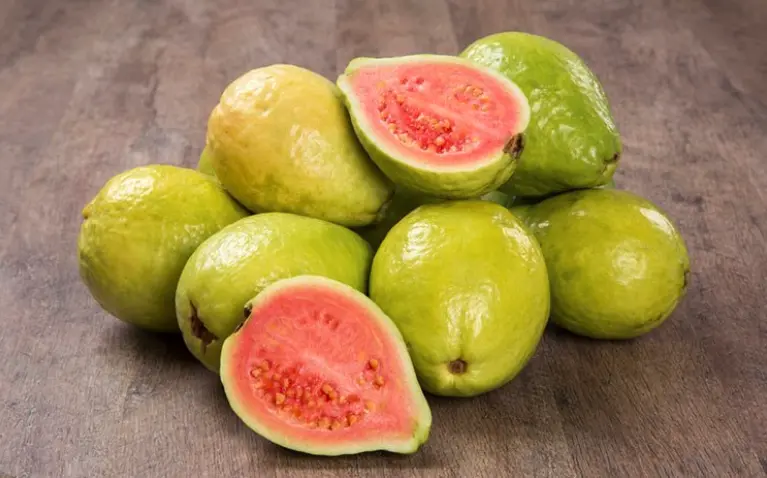No one would think that a small, unattractive looking fruit, with a pulp full of hundreds of small seeds, has such a high nutritional content. That is the guava, small and big at the same time.
The plant, native to the Americas, produces a fruit that contains about 16 vitamins, including vitamin C in a percentage seven times higher than that of the orange, even more than lemon and grapefruit, which makes it a natural anti-flu.
It also has antioxidant vitamins, such as vitamins A, E and B complex, as well as a high content of potassium and iron along with other minerals, such as magnesium, calcium, phosphorus, sodium and zinc.
“Guava is rich in antioxidants that benefit vision, hair and skin, strengthen the immune system and the formation of teeth, bones and collagen,” says nutritionist Elma Elena Prado Rojas.
“The B complex vitamins are indispensable for the utilization of carbohydrates and proteins”.
Vitamin B2 (riboflavin) helps tissues to properly use oxygen as fuel, while vitamin B2 (thiamine) helps produce energy by efficiently using the carbohydrates and proteins consumed daily.
“Potassium helps control blood pressure, is necessary in the transmission of nerve impulses, prevents cramps and allows the brain to be alert,” adds the nutritionist.
Guava is an excellent source of fiber, which promotes good intestinal function.
In addition, thanks to its astringent, disinfectant and antibacterial properties, it helps to improve stomach and intestinal problems and diarrhea, and purifies the digestive system.
“Guava is a great digestive food that is very useful to achieve good nutrition habits, especially in children and people with weakness or anemia,” shares Prado Rojas.
The fruit grows in tropical climates, its flavor is sour when young and sweet when ripe.
There are three main varieties, each with its own characteristics and shapes ranging from spherical, oval, to pear-shaped. The color of the pulp can be white, yellow, red or pink, with smooth or rough skin.
“The red guava contains more iron and vitamins A, B1 and B2 than the white guava, which contains more potassium and vitamin E”, says the nutritionist, who recommends consuming the fruit preferably in the morning, in juice or alone, so that its depurative power acts to the maximum.
For some people it may be uncomfortable to bite the small seeds it has inside, but this should not be an excuse to stop consuming it and to take advantage of all the benefits it offers to the organism.
Guava Nutrition
The guava has a great nutritional potential rich in fiber, potassium, and above all vitamin C.

